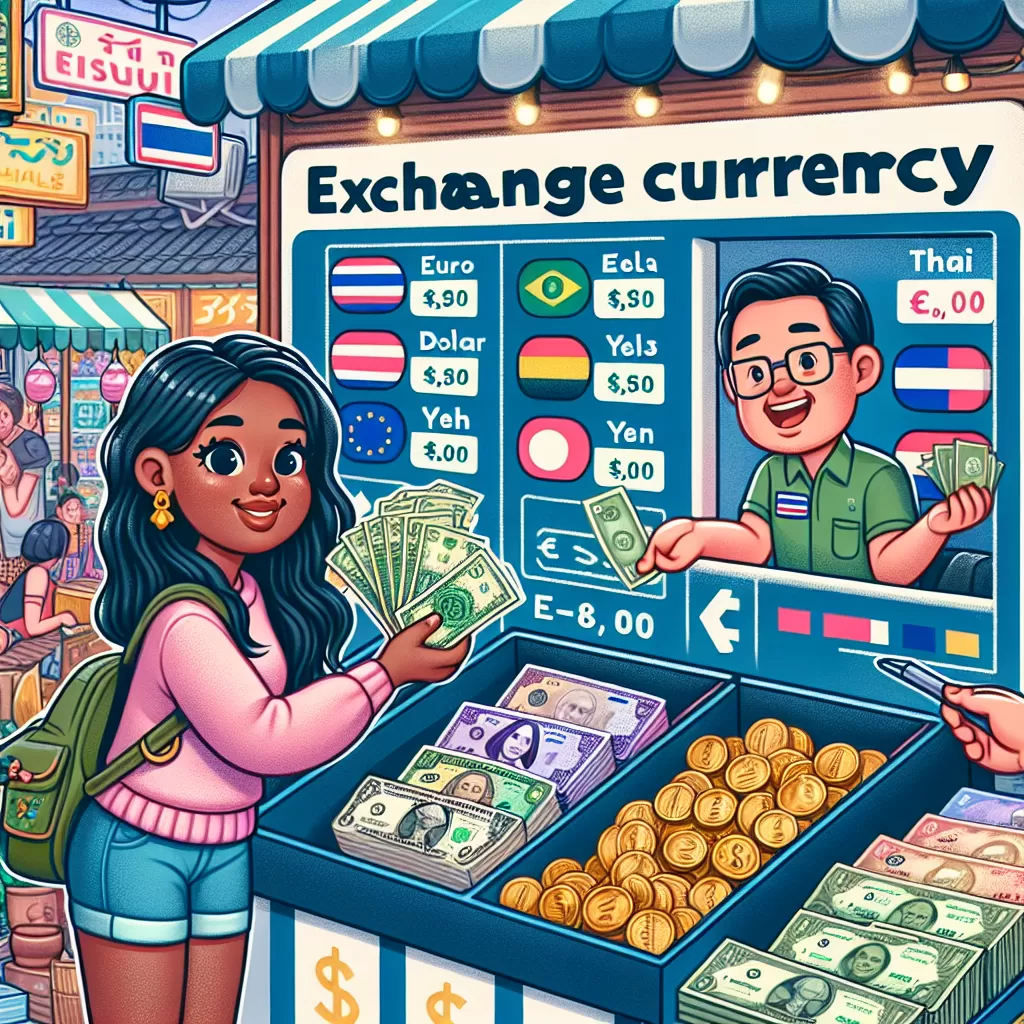How To Exchange Currency In Thailand
Follow Currency Mart April 10, 2024
Where to purchase Foreign Currencies?

Mastering the Art of Currency Exchange in Thailand
Introduction
Exchanging currency in Thailand is an essential part of any traveler's journey. Whether you're coming from Canada, the U.S., or other global locations, knowing how to effectively and efficiently exchange your native currency into Thai Baht is crucial.Benefits of Currency Exchange in Thailand
In contrast to many countries, Thailand generally offers much better exchange rates. Some travelers prefer to bring their native currency in physical cash and exchange it for Thai Baht once they arrive in the country, taking advantage of these superior rates.Currency Exchange at Thai Banks
Banks in Thailand offer reliable and secure currency exchange services. Large banks like Siam Commercial Bank and Kasikorn Bank have branches across the nation which can cater to your currency exchange needs. Visit them during regular business hours, bring your passport and cash, fill out a simple form, and walk away with your Thai Baht. This convenience comes with a minor fee, but the exchange rates are fair and reflect market rates.Currency Exchange at Airport
Upon landing in Thailand, you will quickly notice several currency exchange counters. While incredibly convenient, the rates offered at these airport locations are generally less favorable. If you're not in a rush, consider exchanging a small amount at the airport for immediate travel expenses, then find a local bank or exchange booth for the majority of your exchange needs.Currency Exchange Booths
Thailand is home to countless privately-owned currency exchange booths, particularly in major tourist areas. These booths often offer competitive rates and are generally open long hours, making them a viable option for travellers. Do be mindful, though - always count your money before leaving the booth and request a receipt for your transaction.ATMs in Thailand
Another relatively simple way to get Thai Baht is to use your debit or credit card at an ATM. Thai ATMs are efficient and can be found on every corner. However, most Thai banks impose a 200 Baht charge for cash withdrawals for foreign cards. To minimize your fees, withdraw larger amounts at one time.Using Credit Cards
Another option is to use your credit card for payments. Although not all vendors accept cards, most hotels, upscale restaurants, and big shopping malls will. Remember, foreign transaction fees can apply, so it’s best to use credit for larger purchases instead of numerous small transactions.Safe and Secure Transactions
Currency exchange entails the transfer of real value, so it's necessary to prioritize safety. Always conduct currency exchange in controlled environments like banks, registered ATMs, hotel desks or authorized exchange booths. Be cautious of unsolicited offers to exchange currency at unbelievable rates; they are often scams.Conclusion
Thailand offers varied options for currency exchange to suit every traveller's needs. Having a firm grasp of these options can help ensure you get the most value from your home currency and smoothly navigate your financial journey in the ‘Land of Smiles.’ In the realm of currency exchange, knowledge is your ultimate power. By understanding the dance of numbers and the transformation of value across this South-East Asian border, you'll have the tools necessary to make wise, informed decisions on how best to exchange your currency in Thailand.
Where to purchase Foreign Currencies?